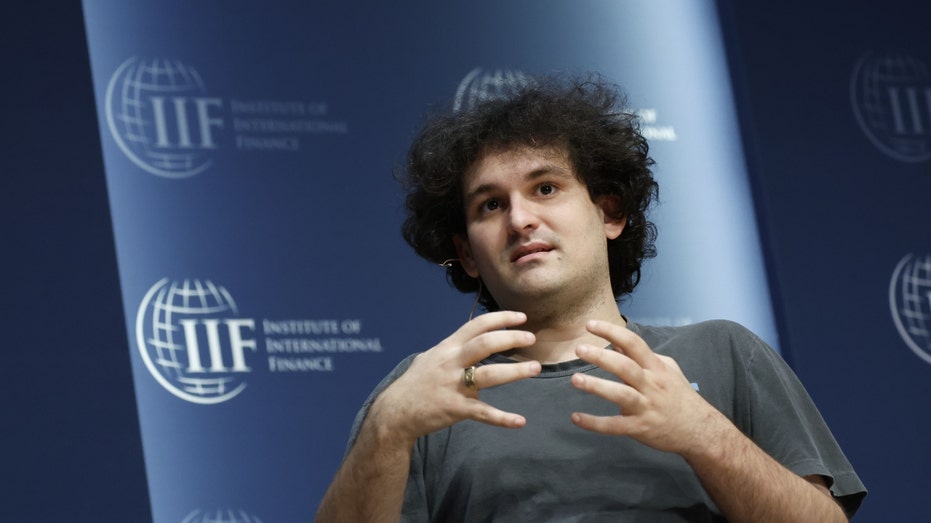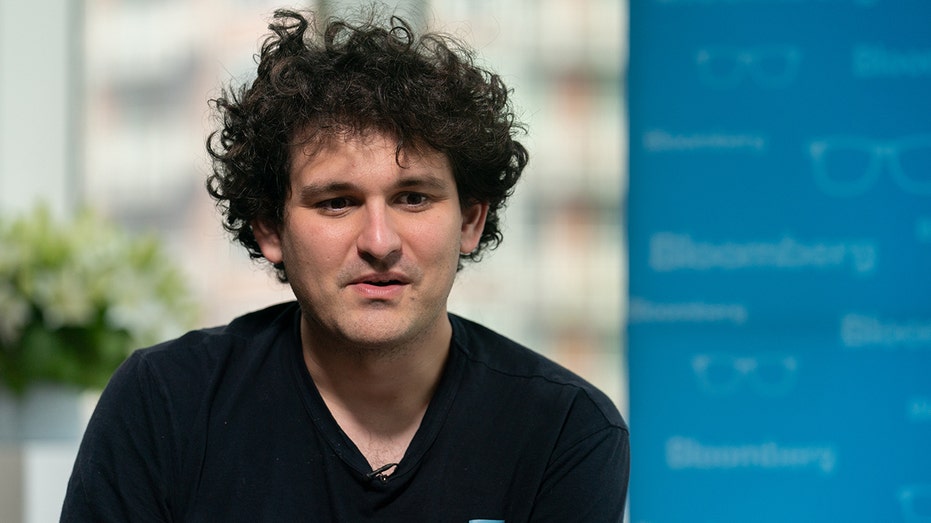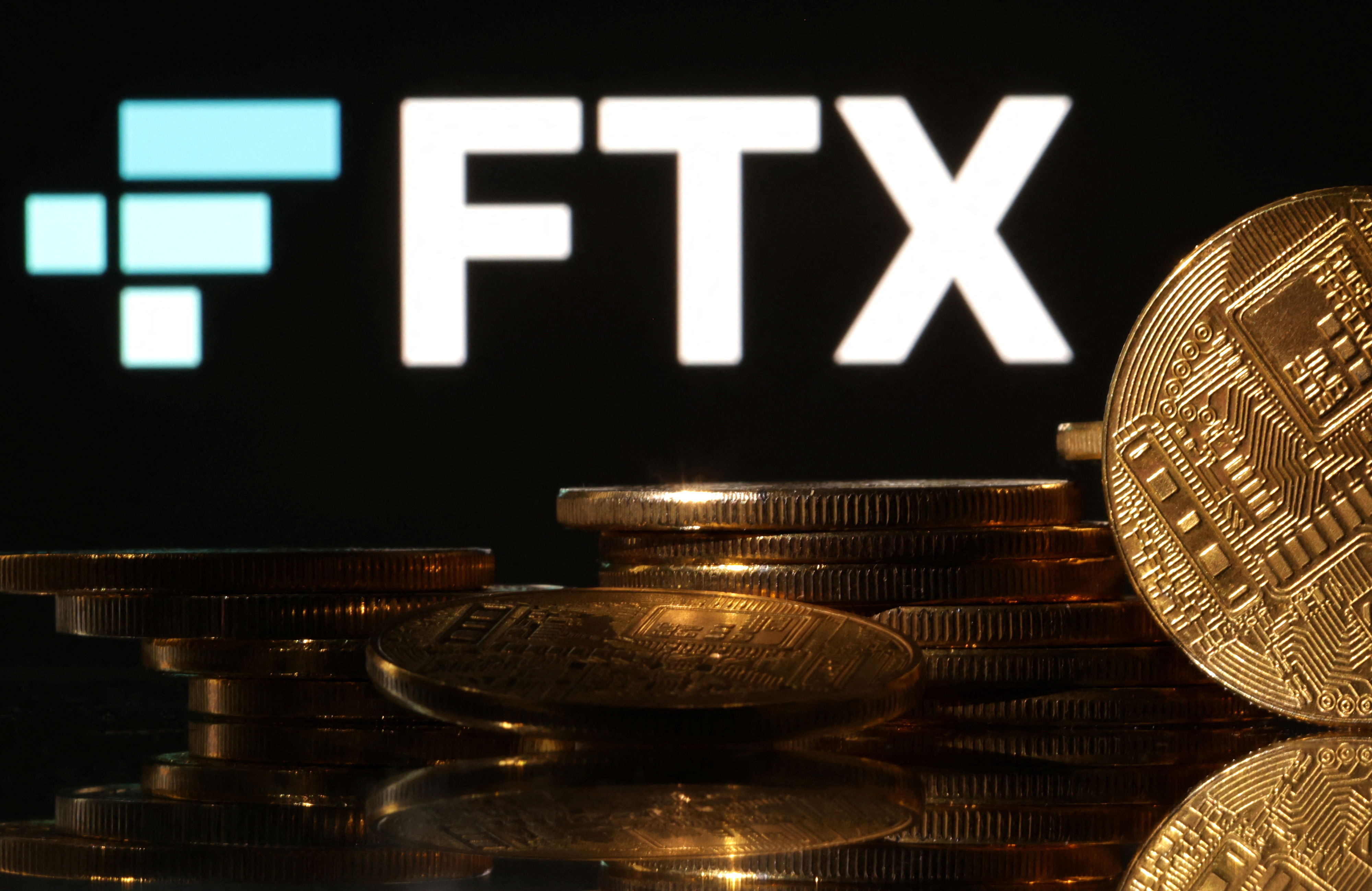Why the investing pros were such suckers for FTX
With billions of dollars at stake, lots of smart people turned a blind eye to the crypto company’s red flags
Sam Bankman-Fried used FTX funds as his own 'personal piggy bank': Jordan Belfort
'The Wolf of Wall Street' Jordan Belfort joined 'Maria Bartiromo's Wall Street' to discuss the fallout from the collapse of FTX and scrutiny facing A-list celebrities and the SEC chair.
In the spectacular collapse of FTX, the cryptocurrency exchange, millions of fingers already seem to be pointing at Sam Bankman-Fried, the frizzy-haired boy wonder who founded the firm, drove it to a valuation of $32 billion and then took it into bankruptcy.
Mr. Bankman-Fried—known as SBF—resigned as chief executive Nov. 11, the day FTX filed for bankruptcy protection and appointed a new CEO, John J. Ray III.
SBF may be at the center of what went wrong, but he didn’t act alone. Behind him lies a vast ecosystem of fantasy and fakery. It’s called the investing business. If we’re going to point fingers, let’s be sure we aim at all the right targets.

Sam Bankman-Fried, founder and chief executive officer of FTX Cryptocurrency Derivatives Exchange, speaks during the Institute of International Finance (IIF) annual membership meeting in Washington, D.C., on Oct. 13, 2022. (Photographer: Ting Shen/Bloomberg via Getty Images / Getty Images)
Hedge funds, venture-capital firms and other professional investors earn billions of dollars of fees for their purported skill in judging the potential of businesses and the integrity of their managers. Yet dozens of the world’s leading investment firms, including Sequoia Capital, Singapore’s state-owned investment company Temasek, the Ontario Teachers’ Pension Plan, SoftBank Group Corp., and hedge funds Third Point and Tiger Global, showered SBF with money.
FALLEN FTX BOSS SPENT LAVISHLY IN BAHAMAS WHILE ALLEGEDLY MISUSING CUSTOMER FUNDS
Despite their vaunted investing expertise, these firms all missed the many red flags fluttering high above FTX. And seldom in financial history have red flags been redder than this.
On the "Odd Lots" podcast in April, Mr. Bankman-Fried didn’t even bother to refute a question about whether a large part of his business might be a Ponzi scheme, also saying that it was "completely reasonable" to assume many crypto assets are "worth zero."
In a Nov. 17 bankruptcy-court filing, Mr. Ray said none of the financial statements of Alameda Research, the affiliated trading firm 90% owned by Mr. Bankman-Fried that’s at the heart of the scandal, had been audited. Nor, he stated, did FTX even maintain an accurate list of all its bank accounts.
During a Zoom interview to raise money from Sequoia Capital, the renowned venture-capital firm, Mr. Bankman-Fried was surreptitiously playing a videogame. Later, a profile of him commissioned by Sequoia bragged about the fact. It was as if daring to play "League of Legends" while asking people for hundreds of millions of dollars was proof of SBF’s brilliance—and Sequoia’s for funding him.

Sam Bankman-Fried, founder and chief executive officer of FTX Cryptocurrency Derivatives Exchange, speaks during an interview on an episode of Bloomberg Wealth with David Rubenstein in New York, US, on Wednesday, Aug 17, 2022. Crypto exchange FTX US (Photographer: Jeenah Moon/Bloomberg via Getty Images / Getty Images)
REGULATORY EXPERT: FTX 'JURISDICTION SHOPPED' TO LOCATE IN LAX REGULATORY ENVIRONMENT
In a letter to its investors about FTX on Nov. 9, Sequoia said the firm is "in the business of taking risk" and does "extensive research and thorough diligence on every investment we make."
In July, Brett Harrison, then president of FTX’s U.S. arm, tweeted that it held customers’ assets in bank accounts insured by the Federal Deposit Insurance Corp., according to the FDIC. After the regulator called the tweets "false and misleading," Mr. Harrison apologized and deleted them.
Any prospective institutional backer of FTX should have uncovered such basic flaws through even "minimally adequate" due diligence, says David Salem, a veteran asset manager and research partner at Sparkline Capital, an investment firm in New York.
How could so many smart people be so blind to such bright red flags?
I think the failure comes from what the English poet Samuel Taylor Coleridge called "the willing suspension of disbelief." That "poetic faith," he wrote, has the potential to make the supernatural credible to "every human being."
Every bull market creates a willing suspension of disbelief, but the massive fee incentives of the investing business have turned the supernatural into the normal.
Institutions managing hundreds of billions of dollars apiece are under constant pressure to achieve the annual returns of 8% or more they’ve conditioned their investors to expect. Venture-capital firms and hedge funds have oceans of money to pour into any startup bigger than a teacup.
Especially if you manage money for other people, the only thing a bull market inflates faster than your wealth is your ego. The more often you’ve been right about something, the more you’ll believe you’re right about everything.
In the craze to hurl money at crypto, no one paused to ask: Even if we’re right, is this the best way to make money from being right?
Crypto may well transform the world—but maybe that means the biggest beneficiaries won’t be in the crypto industry itself.
Steve Forbes shares insight on FTX crypto scandal
Forbes Media Chairman Steve Forbes on President Biden's latest inflation remarks and the FTX collapse on 'Fox Business Tonight.'
Think back to the mania for internet stocks in 1999-2000. Online commerce did change the world. But, it turned out, the biggest winners from the advent of the internet were manufacturers and service providers in other industries. Most of the hottest dot-coms from those days don’t even exist anymore.
Back in April, Mr. Bankman-Fried mused in the "Odd Lots" podcast about how venture capitalists pick investments. It’s worth quoting him at length:
"You get a bizarre f—ing process that does not look like the paragon of efficient markets that you might expect. [Venture capitalists] see what all their friends are chattering about, and their friends keep talking about this company…and they start FOMOing [feeling the fear of missing out] and then [they] find a way to get into that….
CLICK HERE TO GET THE FOX BUSINESS APP
"And all the while, you’re like, ‘How do we justify: Is this a good investment? Like, all the models are made up…. You’re valuing [companies] off a model built by a person who owns the thing that’s being sold. So, like, of course the number’s going to go up between now and 2025, right? It’s going to go up an arbitrary amount. And you can justify anything."
Decades ago, Bob Dylan asked, "How many times can a man turn his head and pretend that he just doesn’t see?"
The answer, my friend, isn’t just blowin’ in the wind. The answer is that when there’s no limit to how much money professional investors can get paid to do so, there’s no limit to how many times they can turn their heads.





















